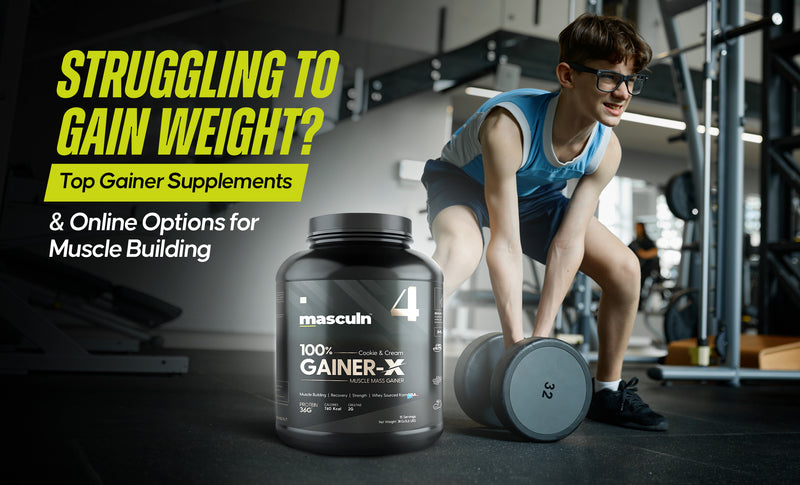Creatine: Best Gym Supplement for Strength and Power

In the world of fitness and bodybuilding, where strength and performance matter, nutritional supplements play a key role in optimizing performance. Among a variety of options, creatine powder stands out as a powerhouse known for its unmatched ability to increase strength, power, and overall athletic performance. In this comprehensive guide, we explore the science, benefits, and considerations behind creatine, the front-runner in gym care supplements.
Understanding Creatine: The Body's Natural Energy Currency
Creatine is a natural compound found in small amounts in some foods and is produced by the body primarily in the liver, kidneys, and pancreas. It plays a key role in cellular energy metabolism, especially during short-term, high-intensity activities such as weight lifting and sprinting. Studies consistently support the effectiveness of creatine for men in increasing strength, and studies have shown significant increases in one-repetition maximum power (1RM) on exercises such as bench presses, squats, and deadlifts. This results in greater muscle stimulation and, over time, greater muscle hypertrophy
Enhanced Strength and Power: Fueling Intense Workouts
The primary allure of creatine for men lies in its ability to boost strength and power during high-intensity, short-duration exercises. By replenishing ATP stores rapidly, creatine powder ensures that the muscles have a readily available energy source, enabling individuals to lift heavier weights, perform more reps, and push their limits in the pursuit of strength gains.
Research consistently supports creatine's efficacy in improving strength, with studies showing significant increases in one-rep max (1RM) performance in exercises like bench presses, squats, and deadlifts. This translates to more significant muscle stimulation and, over time, greater muscle hypertrophy.
Muscle Hypertrophy: Elevating the Gains
Although creatine directly increases strength and performance, its indirect effect on muscle growth is equally impressive. The ability to lift heavier weights and perform more repetitions with creatine supplementation results in increased mechanical tension and metabolic load on muscles, two key factors that contribute to muscle hypertrophy. In addition, creatine has been shown to increase the water content of muscle cells, increasing their volume. This process not only contributes to the “pumped” feeling during exercise but also creates an environment that promotes muscle growth. The increased cellular hydration and the influx of nutrients into muscle cells create an anabolic state that promotes protein synthesis and overall muscle building.
Improved Exercise Recovery: Reducing Fatigue
Less fatigue Intense workouts inevitably lead to muscle fatigue, limiting the number of repetitions or overall training volume you can achieve. Creatine's role in relieving fatigue is crucial for people looking to optimize their workouts. Studies have shown that creatine can reduce perceived exertion and fatigue during high-intensity exercise. By rapidly replenishing ATP, creatine gives muscles the ability to store energy for longer, delaying the onset of fatigue. Not only does this result in a more productive workout, but it also allows for faster recovery between sets, allowing you to increase the pressure on subsequent exercises.
Brain Health and Cognitive Function: Beyond the Gym
Although creatine is known for its effects on physical performance, its benefits also extend to cognitive function and brain health. The brain, like muscles, uses ATP as an energy source and creatine's role in ATP regeneration can have a positive impact on cognitive processes.
suggest that creatine supplementation may improve cognitive performance, particularly in tasks requiring short-term memory and processing speed. This dual creatine benefit of improved physical performance and cognitive function makes creatine a versatile dietary supplement for anyone seeking an overall increase in vitality and productivity.
Safe and Well-Tolerated: Debunking Myths
Creatine has been extensively studied and numerous studies demonstrate its safety and effectiveness. Despite persistent myths about kidney damage and dehydration, there is no reliable evidence that creatine supplementation at recommended doses has any adverse health effects.
Creatine has been shown to have potential health benefits such as. reducing the risk of neurological diseases and antioxidant properties. Its safety profile, combined with widespread use among athletes and fitness enthusiasts, highlights creatine as a reliable and well-tolerated dietary supplement.
Conclusion
To summarize, Creatine's reputation as the best supplement for strength and performance in gym care is well supported by scientific evidence and the experiences of countless athletes. Its ability to increase strength, power, muscle growth, and cognitive function makes it a versatile and valuable tool for anyone looking to achieve their fitness goals. Whether you are an experienced bodybuilder, a powerlifting enthusiast, or a fitness newbie, the benefits of creatine can boost your efforts and propel you to achieve the results you desire. As with any dietary supplement, it is extremely important to use creatine responsibly, adhere to recommended dosages, and consult specialists if necessary. Harness the power of creatine, increase your strength and performance, and embark on a journey of benefits and unparalleled performance in the gym. The cornerstone of sports nutrition, creatine represents the combination of science, dedication, and the relentless pursuit of excellence in physical performance.














